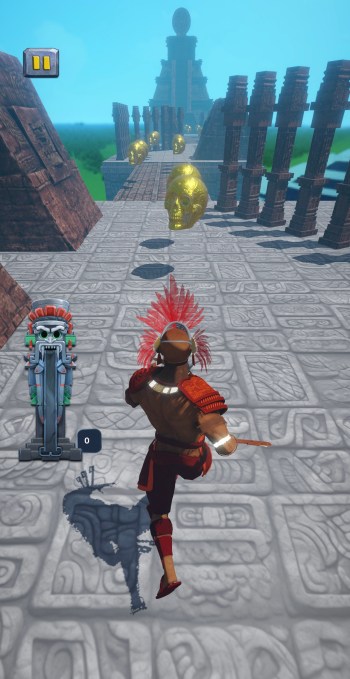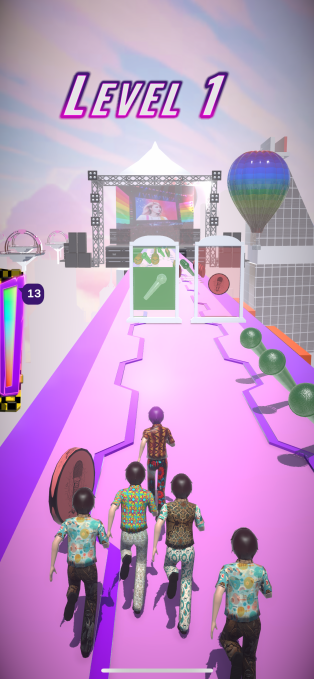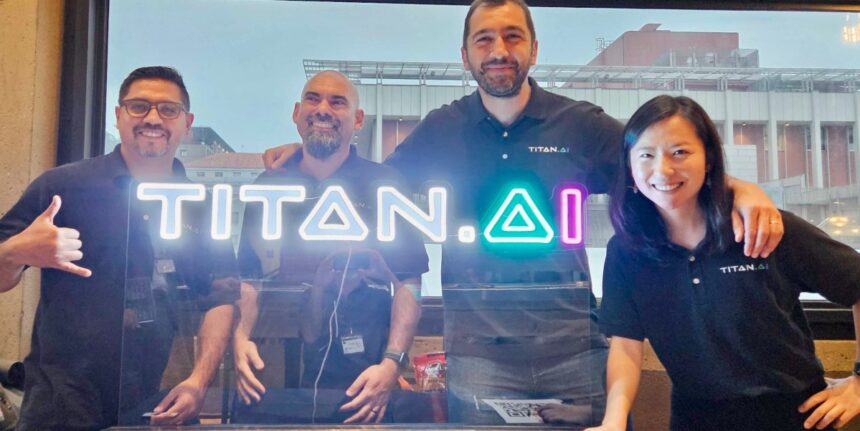The use of generative AI is gaining traction in various sectors, including gaming. A new mobile games studio, Titan AI, recently secured over $500,000 in pre-seed funding, led by Berkeley SkyDeck. This investment reflects the growing interest in leveraging generative AI to streamline the creation of 2D and 3D content for games, aiming to reduce costs and accelerate development timelines. The production of mobile games can often exceed $250,000, depending on their complexity.
Titan AI utilizes image generators like Stable Diffusion and DALL-E to produce 2D graphics and merges them with 3D models using proprietary technology. The company is also training AI to generate level segments of varying difficulty levels, a task co-founder Fabien-Pierre Nicolas describes as labor-intensive.
Nicolas, a former vice president of U.S. marketing at SmartNews, and Victor Ceitelis, co-founder of Scenario, a generative AI startup, established Titan AI. Their primary goal is to create more inclusive experiences for players who are often underrepresented in games.
“We recognized an opportunity to enhance the representation of various communities in games, a significant aspect of today’s entertainment culture, and set out to develop games for people we care about — our families,” Nicolas said in an interview with TechCrunch. Growing up with an LGBTQ+ parent, and with a Korean spouse, Nicolas has a personal connection to the company’s mission. Similarly, Ceitelis, of LatinX descent born to Chilean parents, can relate to the lack of representation in games. This motivated them to create Titan AI’s first game, Aztec Spirit Run, which aims to subvert stereotypes and features a protagonist racing against Conquistadores to safeguard a temple’s treasure.

Image Credits: Titan AI
In addition to Aztec Spirit Run, the studio has released three other prototypes– KPop Dream Run, Reptile Dream Run, and Holy Bible Run: Jesus Miracles.
Endless runner games like Temple Run and Subway Surfers have maintained popularity for over a decade. Therefore, following this well-established runner template makes strategic sense, particularly for developers looking to explore generative AI. Titan AI has leveraged this technology to introduce numerous in-game character customization options, including outfits and tattoos. The company plans to further enhance the gaming experience by enabling characters to run faster and collect additional items such as golden skulls.
“In our early research, we discovered that a majority of individuals from underrepresented segments have played at least one runner game,” Nicolas stated.
Despite the widespread appeal of runner games, some may argue that the market is oversaturated. However, the potential of generative AI in gaming offers numerous possibilities, and there is anticipation surrounding future developments from Titan AI. For example, generative AI could empower players to design their own in-game avatars from scratch.
“The runner template was employed to test our platform’s ability to create playable prototypes with 3D elements. Furthermore, our proprietary AI enables us to explore other AI-level building concepts,” Nicolas added. He revealed that the company is currently experimenting with another game template but did not divulge further details.

Image Credits: Titan AI
As Titan AI prioritizes accessibility for underserved audiences, all its games are offered as free-to-play experiences. The company generates revenue through in-app advertisements and paid features.
Nicolas emphasizes that Titan AI’s funding round signifies a story of hope and optimism in the current gaming industry landscape. He elaborated that the new studio’s funding, driven by a positive mission for global impact, represents a beacon of hope amidst the prevalent pessimism. The funding round also attracted investment from seven angel investors, including Andreas Gross, generative AI product leader at Meta, and Bob Meese, Duolingo’s chief business officer.









